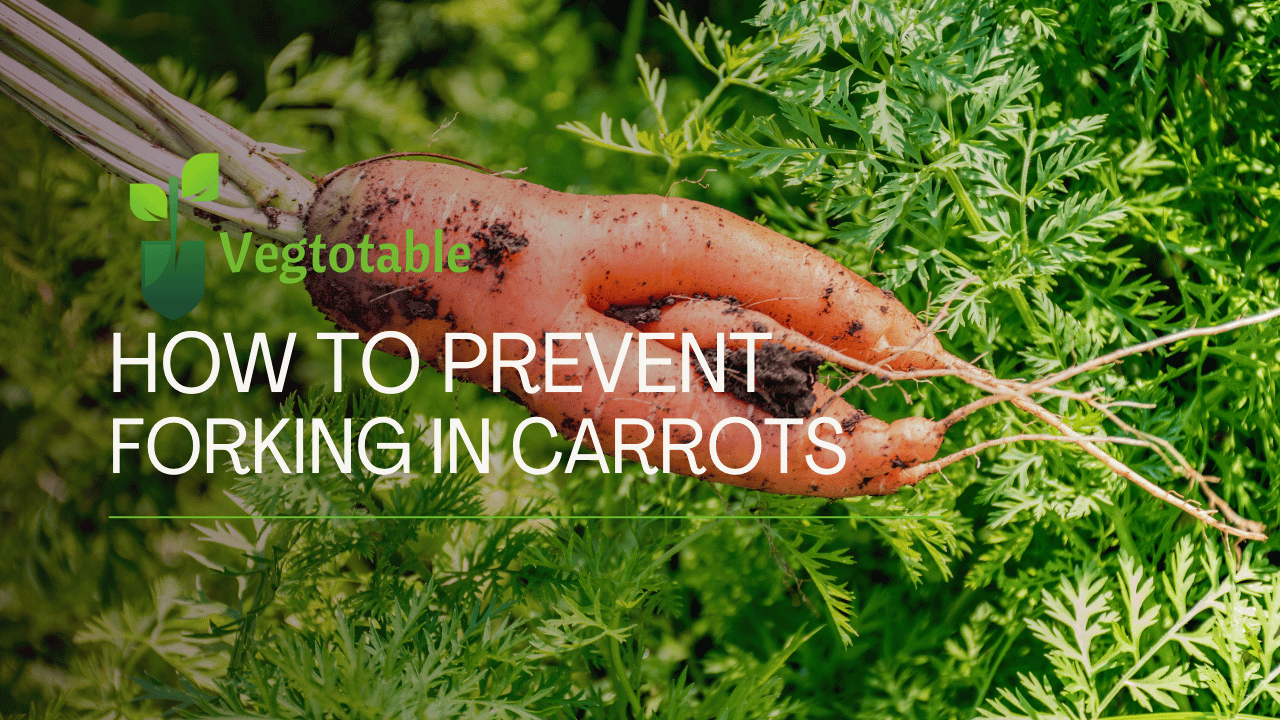How to Prevent Forking in Carrots
When I first started learning about how to grow carrots, I heard people talk about forking a lot. I even experienced some forked and twisted carrots during my first year of gardening.
Turns out forking is rather common with carrots, especially for new gardeners. Here’s what I’ve learned over my years of growing carrots about forking and how to prevent it.
What Is Carrot Forking
Forking doesn’t always look the same on every carrot. When a carrot forks it has a misshapen root tip. This can take the form of a shortening root or have multiple roots splitting off in different directions.
Forking carrots look funny when they develop multiple taproots, but it doesn’t affect their flavor. We eat them all the time.
Can You Eat Forked Carrots
As long as the carrot isn’t diseased, you can eat a forked carrot. If you see galls caused by nematodes or other signs of a carrot disease, do not eat it.
Usually, I chop up forked carrots and cook them in a stew. A forked carrot is still a healthy carrot, it just looks funny.
What Causes Carrots to Fork
The simplest answer is anything that obstructs the tip of the carrot root, especially at a young age, will cause a carrot to fork. If the tip of the carrot is damaged in any way, it will cause the carrot to fork.
That means a lot of things can cause it including:
Attacks by insects and other pests
Something as simple as a pest nibbling on the tip of the carrot root can be enough to cause a carrot to fork.
Nematodes
Nematodes do cause forking. While you can’t see root-knot nematodes, you’ll often see forking accompanied by galls on your carrot roots.
Diseases
Root dieback is a common disease that causes forked carrots.
Clumps of heavy soil or poor soil drainage
Heavy clay soil can often cause carrots to fork.
Stones, debris, or rocky soil
If the carrot hits anything while it is growing, even a small pebble, it may fork.
Growing too close
If you don’t thin carrots appropriately, they can fork or twist around each other. One year I had 5 carrots all twisted around each other.
Transplanting
Carrots are really sensitive which is why I never transplant them. If you so much as nick the carrot tip during transplanting, it can cause it to fork.
Overwintering
Carrots are biennials meaning if you overwinter them, they will go to seed in the second year of their growth. I’ve noticed that sometimes this also results in forked carrots. It’s not a big deal if you’re growing them for seed though.
Weeds
Weeds can have extensive root systems which interfere with carrot development and can cause them to fork. Pull weeds early and often from your garden. Many times people confuse weeds with carrot sprouts, so be sure you know the difference. Here’s an article about identifying carrot sprouts.
Fertilizers
Some fertilizers have caused my carrots to fork, especially if you use too much nitrogen. I tried a 6-12-12 fertilizer once and it caused my carrots to fork and become hairy.
How to Prevent Forking in Carrots
The good news is that it’s fairly easy to prevent forking in carrots once you know the causes. Here is how you can prevent your carrots from forking this year.
Water Consistently
Come up with a consistent water schedule that keeps the soil moist, but not waterlogged.
Loosen Soil
If you’re growing carrots in the ground, loosen the soil first and remove any debris such as stones or wood that could interfere with the carrot taproot.
Companion Plant
Make use of companion plants that help deter pests which can also lead to diseases.
Avoid Nitrogen
Fertilize your carrots with the right stuff and avoid nitrogen-heavy fertilizers.
Thin Carrots
I never worry about carrot spacing when sowing seeds, but that’s because I thin them at the right times. Make sure you thin your carrots two times during the growing season.
Select the Right Carrots
Depending on how you are growing carrots, select a variety that makes sense. If you’re growing in dense soil, select a Chantenay or Danvers carrot type that performs better in clay and heavy soils.
If you’re growing carrots in a container, select a shorter variety such as Little Finger or Tonda di Pari if your container is small.
You can read all about carrot types and what works best in my article on 5 Types of Carrots to Grow This Year.
Solarize and Crop Rotation
Practice good crop rotation to avoid pests and diseases. If you encounter nematodes in your soil, consider solarizing it to kill them before planting again.
Don’t Walk on Soil
Don’t walk on soil where you plan to plant carrots. This will compact it and can cause the carrots to fork. If you are gardening in raised beds, choose a bed size where you can reach the middle without having to step into the bed.
Add Compost and Sand
If you are growing in heavy clay soil, you can add some sand and compost to create your own sandy loam soil. Here’s an article about the best soil for carrots and at the end I have a homemade recipe to make sandy loam soil.
Don’t Overwinter
It’s simple, unless you are saving part of your carrot harvest for seeds the following year, don’t overwinter your carrots. I know a lot of people do, but this exposes them to forking and several diseases.
FAQ
How Do You Get Carrots to Grow Straight
Plant carrots in sandy loam soil that has good drainage and does not have stones or other obstacles. Water consistently, don’t over-fertilize, and thin your carrots so they don’t bump into one another.
Does Manure Make Carrots Fork
Yes, it can. Compost and manure are very dense and if you work too much of it into your soil, clumps can form which cause carrots to fork.



